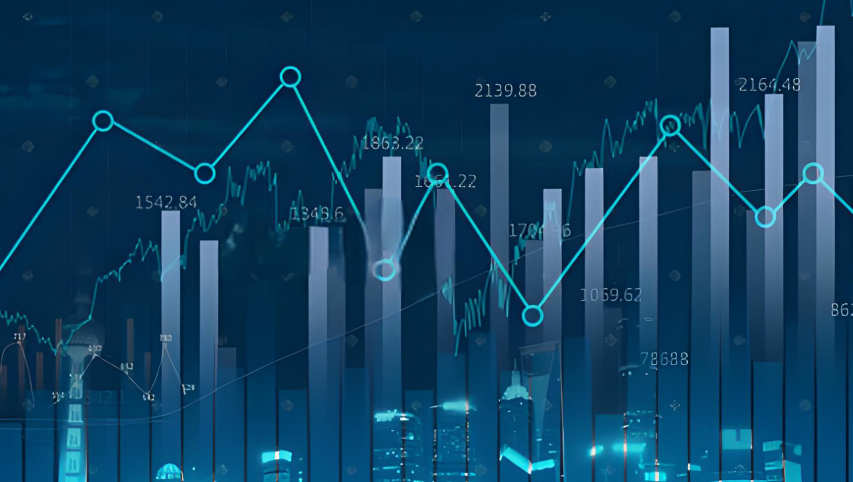The Uncertainty of Japan's Rate Hike
Advertisements
The shifts in the global economic landscape have placed a significant spotlight on central bank monetary policies, particularly those of Japan. As we near the end of the year, discussions surrounding the Bank of Japan (BoJ) have intensified, especially following the implementation of two interest rate increases this year. Some analysts and investors are now speculating whether Japan's central bank might deliver a rare "three-peat" of rate hikes before the year's end, a scenario that could reverberate through the global markets.
December holds the final monetary policy meeting of the year for the Bank of Japan, and all eyes are on the central bank as market participants seek clues about its next moves. The impending speech by the BoJ's Deputy Governor, Mito Muto, scheduled for January 14 in Yokohama, is raising eyebrows, especially considering the lack of similar pre-meeting activities by the BoJ officials in over a decade. This forthcoming appearance has sparked considerable interest in what Muto might reveal about the central bank's direction moving forward.
A recent Bloomberg survey, conducted prior to the October policy meeting, revealed that more than 80% of economists tracking the Bank of Japan are predicting a potential rate hike in January. This sentiment is symptomatic of a broader optimism regarding Japan's economic recovery and the expectation of appropriate adjustments in the central bank's monetary policy. The anticipation reflects an emerging confidence in Japan's economic ability to stabilize and grow, which is a crucial indicator of how the nation is pivoting post-pandemic.
However, raising interest rates is a complex undertaking, especially given the current global economic disparities and persistent inflationary pressures. The Bank of Japan faces the daunting task of balancing domestic economic conditions against external market reactions. The uncertainty surrounding whether the BoJ will follow through with these anticipated hikes persists, given the nuanced interplay of various economic indicators.

Economist Taro Kimura from Bloomberg maintains a forecast that aligns with the market's optimistic view for a third interest rate hike in January. He asserts that with Japan's ongoing economic resurgence and the mounting pressures of inflation, it is essential for the central bank to act decisively in increasing rates to not only mitigate inflation but also stabilize financial markets. Kimura anticipates three rate hikes in the coming year, potentially occurring in January, April, and July, projecting a target short-term interest rate in the vicinity of 1%.
This perspective is reflective of a prevailing evangelical enthusiasm regarding the BoJ's potential monetary policy trajectory. Nonetheless, some analysts caution against a hurried approach to rate hikes. They warn that an aggressive escalation in interest rates could produce adverse implications for economic stability and might even trigger market volatility. Thus, a more cautious approach might be warranted, allowing for calibration in monetary policy while ensuring the economy continues its upward trajectory.
Regardless of the economic backdrop, the looming question of whether the Bank of Japan can successfully execute a "three-peat" of rate hikes remains a significant focal point for the global financial landscape. The stakes are high, and the potential ramifications of the BoJ's decisions are profound. This predicament serves as a litmus test for the BoJ's policymaking acumen in a convoluted economic environment, where it must meticulously evaluate many variables, including domestic inflation, growth dynamism, and labor market conditions to make informed decisions. The global market also watches with bated breath; any shifts in policy could significantly affect capital flows, currency exchange rates, and overall market ripples.
Furthermore, the extensive impact of the Bank of Japan's monetary policy adjustments is not limited to monetary metrics alone. The fluctuations in interest rates, changes in money supply, and corresponding decisions dramatically influence corporate financing costs, consumer spending habits, and subsequent economic growth trajectories. Globally, such moves may alter capital flow directions, influence exchange rate fluctuations, and shift commodity pricing dynamics. For this reason, fortified communication and collaboration among central banks and international financial institutions have never been more critical. Regular exchanges of economic data, coupled with shared policy insights, can pave the way for coherent and synchronized actions.
In the face of global economic challenges, such as trade disruptions or potential financial crises, the need for collective action becomes salient. When central banks engage in collaborative policymaking, they can bolster market expectations and ensure a more stable and sustainable economic environment for all players involved.
In conclusion, the question of whether the Bank of Japan will achieve a "three-peat" of interest rate hikes by the end of this year is not only a critical matter for Japan but also a significant theme rippling across the global financial arena. This decision bears profound implications for the recovery of the Japanese economy, the operational dynamics of local businesses, consumer behaviors, employment trends, and global market trends involving capital flows, currency valuation, and global commodities pricing. With these factors in play, it is imperative that financial institutions, governing bodies, and businesses alike remain vigilant regarding market trends. Efforts should be intensified to foster interconnectivity and cooperative strategies amongst various entities to mitigate potential risks and prepare for the evolving economic landscape ahead.
Post Comment